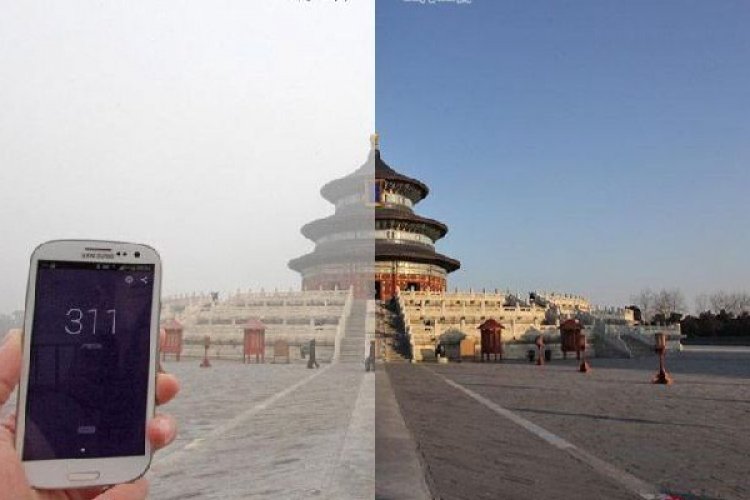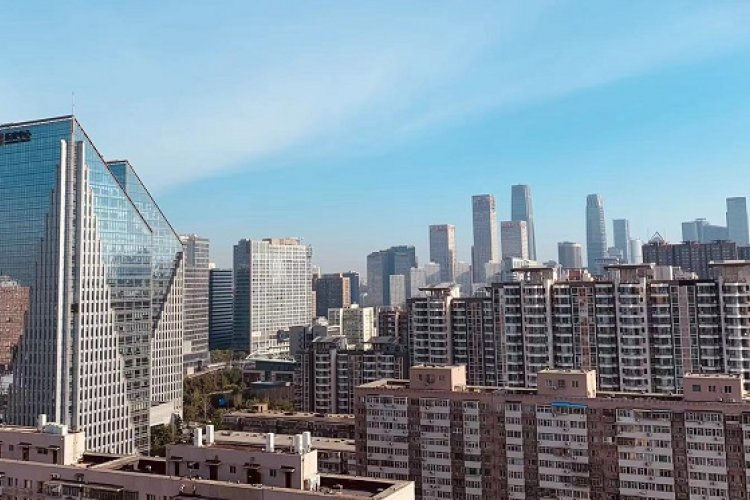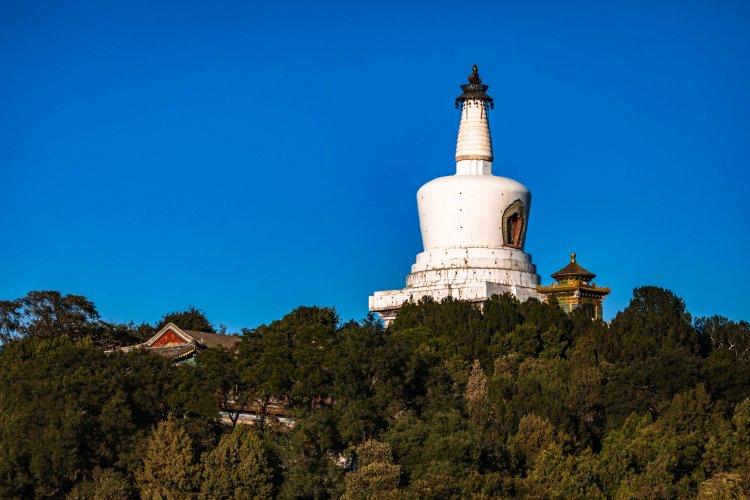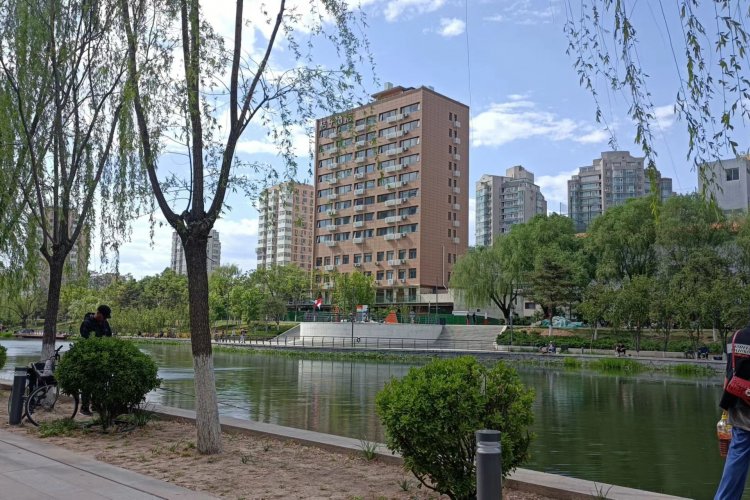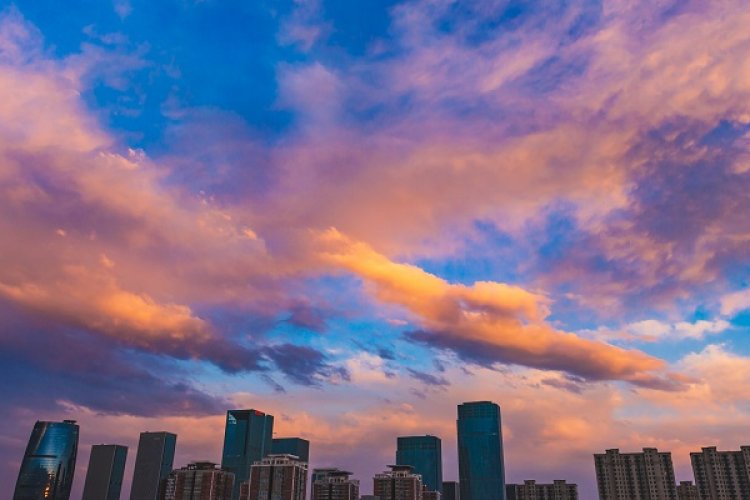Breathe Free, Car Owners: Beijing's Bad Air Ain't Your Fault
The five million car owners of Beijing breathed a sigh of relief this week as the Chinese Academy of Sciences reported that only 4% of the PM2.5 that clouds Beijing's skies are directly attributable to automotive emissions.
In an analysis of seasonal data released this week, the Chinese Academy of Sciences has taken a closer look at the gunk that clouds Beijing’s skies (and our lungs) and discovered, to no one’s surprise, that the burning of fossil fuels is the major culprit -- but Beijing's fleet of over 5 million cars can continue to cruise relatively guilt-free as less than 4% of the filth is coming from their tailpipes.
Oddly, this is a massive downgrade of the original estimates the academy made earlier this year when it said approximately 20% of Beijing's bad air was due to automotive exhaust.
Academy scientists spread the blame between six major components: industrial pollutants (25%); coal burning (18%); dust (15%); biomass incineration (12%); car exhaust and garbage incineration (4%); and finally secondary inorganic aerosols (26%).
The academy did not further analyze the largest single component of the foul air -- secondary inorganic aerosols – which are not primary sources of pollution but rather byproducts of photochemical reactions with primary emissions such as sulphur dioxide. Skeptics will wonder if this might not be a way to hide unpleasant realities.
No indication of how the scientists determined the source of the pollutants was given.
In perhaps the most depressing news for city residents, it seems that no matter what the city itself does, it's going to take a lot more to clear the air: Most of the pollutants are not originating from the city itself but rather from the surrounding Hebei Province, where much of Beijing's polluting industries have been moved in the recent past.
Source: The Beijing News (Chinese only)
Related stories :
Comments
New comments are displayed first.Comments
![]() britomart
Submitted by Guest on Wed, 01/08/2014 - 08:59 Permalink
britomart
Submitted by Guest on Wed, 01/08/2014 - 08:59 Permalink
Re: Breathe Free, Car Owners: Beijing's Bad Air Ain't Your Fault
Hmm... I smell some political back-peddling.
Cars are about the only source of pollution that city authorities can do anything about. Therefore cars MUST be the major source.
![]() admin
Submitted by Guest on Tue, 01/07/2014 - 17:27 Permalink
admin
Submitted by Guest on Tue, 01/07/2014 - 17:27 Permalink
Re: Breathe Free, Car Owners: Beijing's Bad Air Ain't Your Fault
Whoops ... Drivers Back on the Hook as Major Source of Bad Air
http://www.thebeijinger.com/blog/2014/01/07/drivers-back-hook-major-source-bad-air
![]() admin
Submitted by Guest on Fri, 01/03/2014 - 05:29 Permalink
admin
Submitted by Guest on Fri, 01/03/2014 - 05:29 Permalink
Re: Breathe Free, Car Owners: Beijing's Bad Air Ain't Your Fault
OK the Beijing Environmental Protection Bureau doesn't agree: they say automotive exhaust contributes 22% to thr city's pollution:
Beijing sees little improvement in air quality in 2013
"A report released by the Chinese Academy of Sciences on Monday said secondary inorganic aerosols — fine, solid particles comprising sulfate and nitrate that result from a photochemical reaction — are responsible for 26 percent of Beijing's PM2.5, whereas vehicle emissions account for about 4 percent.
However, the bureau contradicted that report on Thursday, saying that automobile emissions are still the major source of PM2.5 in Beijing.
Figures from the bureau reveal that automobile emissions account for 22.2 percent of PM2.5 concentration, after pollution from neighboring provinces (24.5 percent).
It is followed by coal consumption (16.7 percent), industrial pollution (16.3 percent) and dust (15.8 percent)."
![]() britomart
Submitted by Guest on Thu, 01/02/2014 - 09:03 Permalink
britomart
Submitted by Guest on Thu, 01/02/2014 - 09:03 Permalink
Re: Breathe Free, Car Owners: Beijing's Bad Air Ain't Your Fault
...and finally secondary inorganic aerosols (26%).
The academy did not further analyze the largest single component of the foul air -- secondary inorganic aerosols – which are not primary sources of pollution but rather byproducts of photochemical reactions with primary emissions such as sulphur dioxide. Skeptics will wonder if this might not be a way to hide unpleasant realities.
That was exactly what I was wondering when I read this article. Does that make me one of the unnamed skeptics?
![]() squid
Submitted by Guest on Thu, 01/02/2014 - 00:27 Permalink
squid
Submitted by Guest on Thu, 01/02/2014 - 00:27 Permalink
Re: Breathe Free, Car Owners: Beijing's Bad Air Ain't Your Fault
I had said something very similar to this, several weeks back on this site. there is no way that private passenger vehicles are causing the kind of pollution we see in Beijing. In Beijing it is heavy particle smog, and modern cars just don't have much of that. Some of the industrial trucks and buses are a relevant cause, so doing something about them would help, but trying to control personal cars might help traffic, but will do nothing about the smog.
Validate your mobile phone number to post comments.

